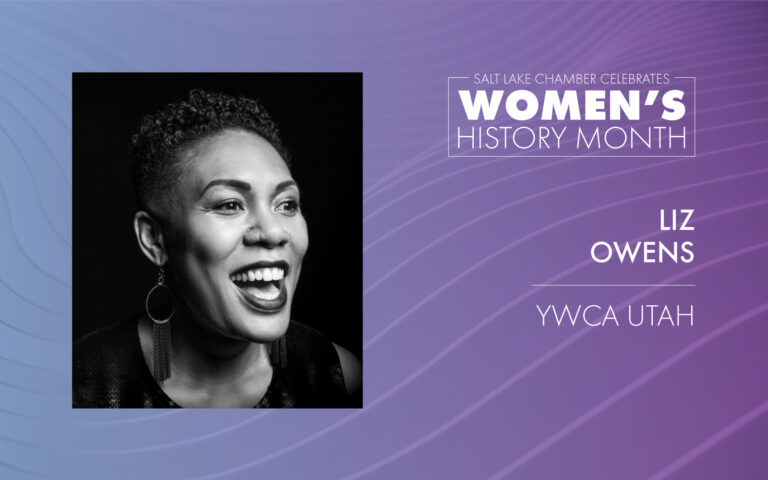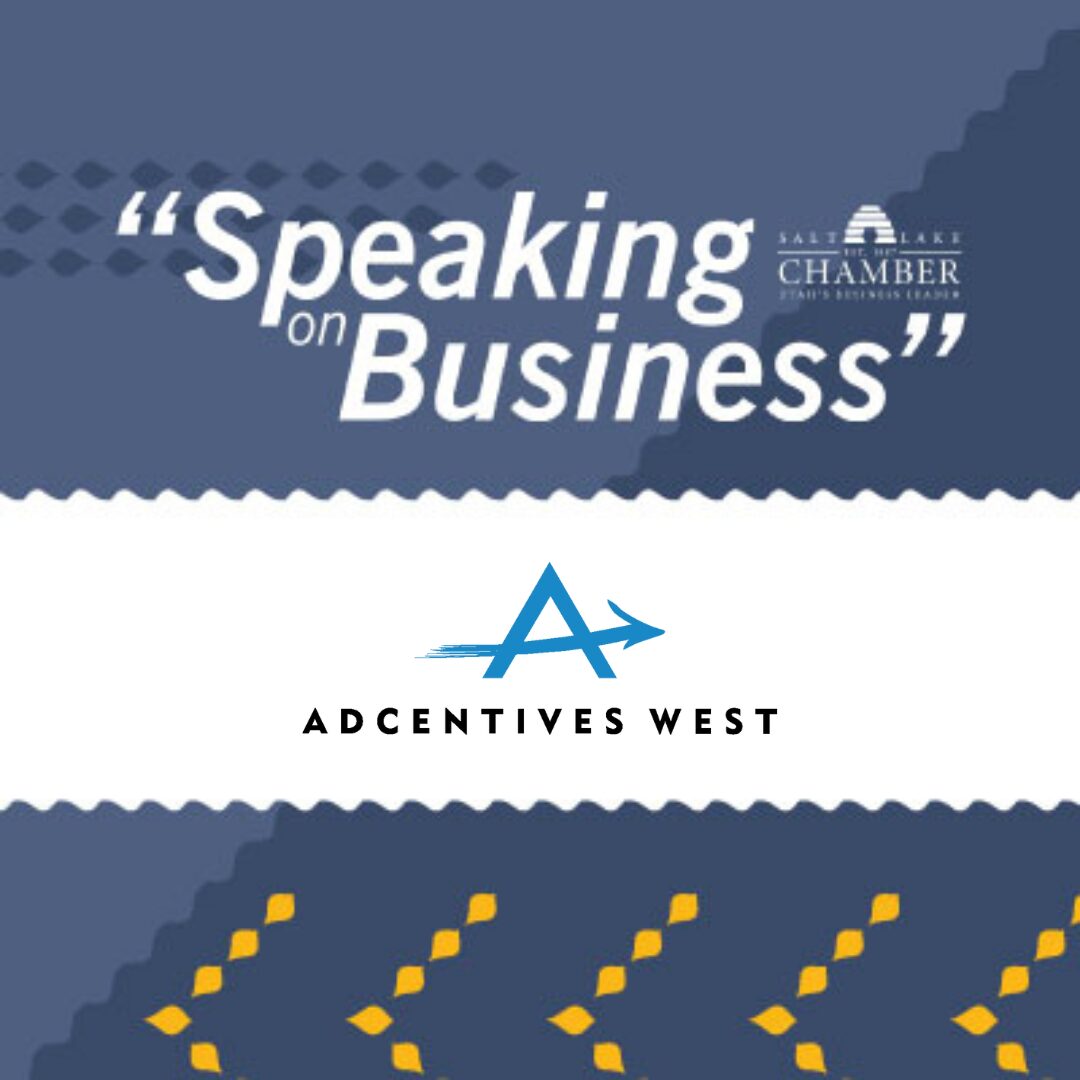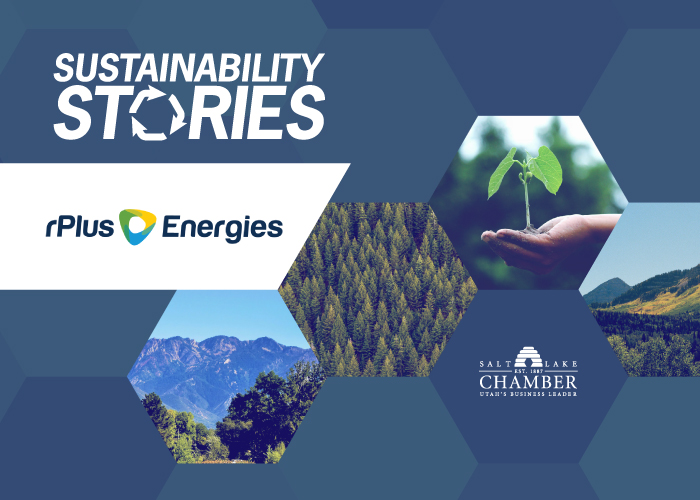During March, the Salt Lake Chamber is highlighting influential women in Utah. By sharing their stories and advice, we hope to bring awareness to the importance of Women’s History Month.
What does Women’s History Month mean to you?
Women’s History Month is an opportunity to recognize and celebrate women’s contributions to the success of our society. It is also an opportunity to understand how far we have come with women’s equality and how far we have left to go. History has forgotten and left out many of women’s contributions. However, during Women’s History Month, the community can rally and promote positive change around one common thing.
How did you get to where you are today, as the CEO of YWCA Utah?
I am from Provo, Utah. After studying sociology at Utah Valley University, I moved to England to pursue a master’s in human rights from the University of Essex. After completing my master’s, I did an internship in London at a women’s rights organization that originally started out as a suffragist organization, called the Fawcett Society. We worked on policy that impacts women, and I worked specifically on a campaign at the intersection of race and gender.
After my internship, I stayed in London and worked for another women’s organization, while doing research on women who were in state custody at Women in Prison, a charity that supports women affected by the criminal justice system. I have always been really focused on women, gender and the marginalized experiences of women across different identities.
I have specifically worked with women who are impacted by the criminal justice system, involved in gangs and trafficking, survivors of domestic violence and sexual assault, as well as women who are impovershed and refugees. My focus is supporting and providing resources and aid to these women who experience barriers to opportunities for safety and well-being.
When I moved back to Utah, I worked in Salt Lake City for a number of nonprofits, continuing to focus on the experiences of women but also really broadening my understanding of gender. For example, I think it’s important to study women in poverty in order to effectively increase the wellbeing of our entire community.
I’ve worked for the Utah Pride Center, Planned Parenthood Association of Utah, Utah Domestic Violence Coalition and, more recently, as the executive director of the Utah Coalition Against Sexual Assualt. I partnershiped a lot with YWCA Utah and was hopeful that the opportunity to step into this role would arise in a few years, and that I would be positioned to apply and be successful.
Our mission at YWCA is to eliminate racism, empower women, and promote peace, justice, freedom and dignity for all. That entire mission really spoke to me, and it felt like I’d been preparing throughout my studies and career for this role. I was just so excited about it and remain excited.
I started two weeks into the lockdown during the COVID-19 pandemic. We are a direct service provider — the first and largest women’s shelter nonprofit organization in the state of Utah, with 181 licensed beds in our emergency shelter, children’s and childcare services, affordable housing complex, and race and gender equity engagement with the community. It was essential that we remained fully operational during the pandemic because the services we provide are directly related to the safety and wellbeing of families in our community. In doing so, there have been many ups and downs and challenges, but we’re really proud that we’ve been able to weather to this point so successfully, and I’m optimistic that we’ll continue to do well.
What is an example of a past initiative or project that you’re proud of?
When I started working for YWCA in April of 2020, a month in, the murder of George Floyd happened and the summer of 2020 really took off in terms of the racial reckoning in our country. Our mission, of course, is to eliminate racism, so one of the things that we did was develop and host a 21-day racial equity and social justice challenge, now called Stand Against Racism. It takes 21 days to build a habit, so the idea was to provide participants with the opportunity to learn more about race equity, through daily topics.
We put this campaign together on the fly, but it was a team effort and looked beautiful, so folks didn’t know we hadn’t refined it months in advance. The challenge’s message was aligned with our mission. It was important to us to be engaged in community learning and we saw a place for us to step in to provide a resource for our community — and there was just a lot of interest, passion and energy. It was something that wasn’t part of the strategic plan, we saw a need in the community and our community was reaching out to us — so we responded to meet that need.
The 2020 challenge was really successful — we had over 6,000 participants across the world. We continued the challenge in 2021, and are starting this year’s challenge in April. So, it has become part of our menu of programs and resources we provide. I am really proud of this campaign because it was a way to meet the needs of the community, and that fire and passion aligned with our mission. It was also YWCA’s place and position to do something, and I am also really proud of what we were able to do and the legacy that continues.
How have your female mentors inspired you to be the person you are today?
Whenever I reflect on what that answer is, there are so many, and I feel really grateful. When I was younger, I looked for a mentor who was like me — doing what I wanted to do and sharing a similar journey. Of course, I never found that person because we all have unique journeys and experiences. But what I have found are mentors in so many different women and men.
At work, I have had so many mentors, and they haven’t always been people in positions of power, decision-making or seniority — there are just so many of my peers who I admire, and I’ve watched for people who have those characteristics that I would like to cultivate for myself. So many of my mentors, including my mother, took those steps and made a lot of effort to lift me up – to encourage and support me – and that has made all the difference.
What advice would you give to other businesswomen?
The advice I would give is to be kind to everyone, regardless of how you feel. We live in a society with an economic system that encourages competition. However, anybody’s success is not theirs alone. I could name 100 people who have helped me get here and stay here.
When you feel insecure or like an imposter, try to listen to your body and feelings and reach out to someone in kindness. Actively moving away from competition and instead, focusing on collaboration, has made a tremendous difference in my life. I have felt so overwhelmed and grateful for the amount of support I’ve received. I have taken that cultivation and practice of being open to other people and used it with the mindset that people are my partners, not my competition.
*Stay updated on more stories, events and information on Women’s History Month by visiting the Salt Lake Chamber’s Women’s History Month website and engaging in our weekly challenges.


